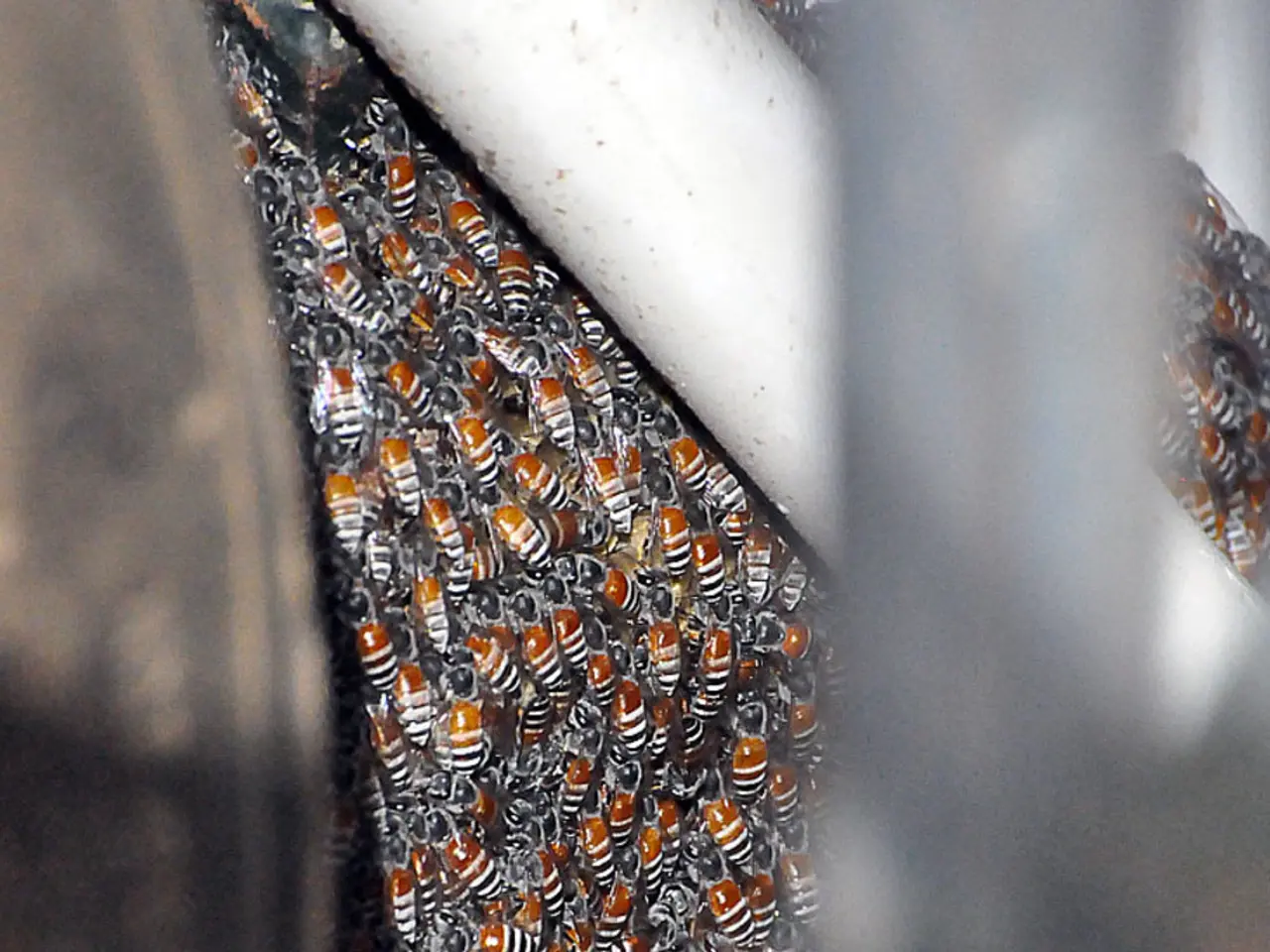Criticism mounts over private beekeeping surge - "Examining Beyond Honey: Assessing the Controversies Surrounding Private Beekeeping"
In the lush gardens of Brandenburg, Detlef Kaepnick tends to his six honeybee colonies with a keen eye for conservation. With around one million private honeybee colonies in Germany, according to August-Wilhelm Schinkel, a member of the German Beekeepers' Association, the practice of beekeeping has become increasingly popular. However, it's crucial to remember that beekeeping and conservation are not always synonymous.
Competition for pollen and nectar is a significant concern when setting up a beehive in a garden. To avoid this, Kaepnick ensures his garden is teeming with year-round blooming plants, a practice he recommends for all beekeepers. Native plants, in particular, are essential for bees, as they provide the necessary nutrients and support pollinator diversity.
However, large numbers of managed honeybee hives can outcompete wild bees for these resources, potentially harming wild pollinator populations and biodiversity. To mitigate this, it's important to regulate hive density, avoid placing too many hives in a limited area, and enhance floral resources by planting pollinator-friendly flowers and maintaining diverse vegetation.
Moreover, managed bees may facilitate the spread of pathogens and parasites to wild bees, threatening local pollinator health. Early detection and management of pathogens and parasites in hives can prevent spillover to wild bees, and cooperation with research institutions helps surveillance efforts.
In urban or densely populated areas with limited green space, increased beekeeping can reduce forage availability, leading to lower honey yields and stressed bee colonies. To address this, it's essential to promote multispecies conservation, integrating beekeeping with nature-based solutions that consider the habitat needs of various pollinators.
For those who want to do something for the environment, private beekeeping is just one option. Engaging with local conservation groups and regulations, complying with local hive registration and guidelines, and participating in community efforts to balance urban or rural pollinator management are other ways to contribute.
Laura Breitkreuz, NABU's biodiversity spokesperson, advises caution about private beekeeping due to potential problems for wild bees. Many people confuse keeping honeybees with conservation, but it's essential to remember that beekeeping can be problematic in cities where natural habitats are limited, potentially leading to competition.
In conclusion, private beekeeping in Germany can contribute to conservation by carefully balancing hive numbers, maintaining bee health, improving habitats, and supporting multiple pollinator species rather than focusing solely on honeybees. By following these guidelines, beekeepers can help preserve native bees and promote biodiversity, ensuring a harmonious coexistence between humans and bees.
- Incorporating science and environmental-science in community policy and employment policy is essential to ensure sustainable beekeeping practices, such as regulating hive density, promoting multispecies conservation, and enhancing floral resources.
- To foster the health-and-wellness of local pollinator populations, beekeepers should collaborate with research institutions to monitor and manage pathogens and parasites in hives, ultimately benefiting not only their own honeybee colonies but also wild bees and biodiversity.




